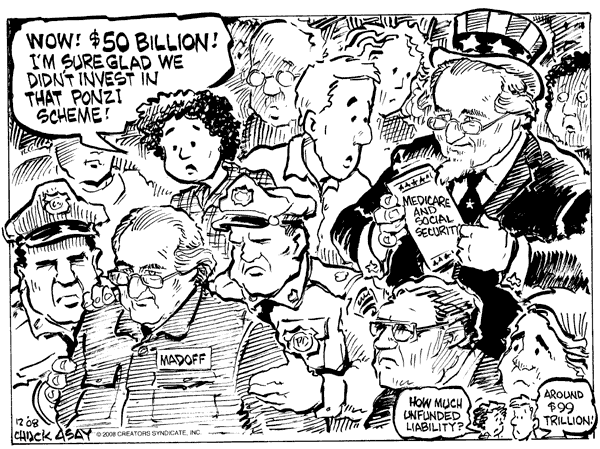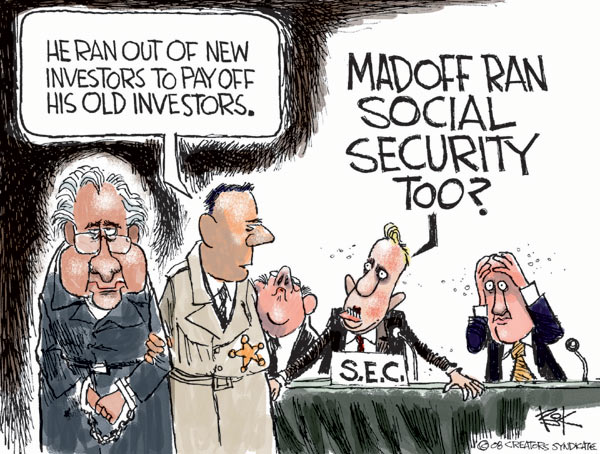http://en.wikipedia.org/wiki/Sarbanes-Oxley_Act
I mean, wasn't that supposed to stop all the financial nonsense in the US?
Don't be stupid, it's the wrong tool for the wrong job. Rushed through in some half-assed attempt to show the media they were doing something.
The few $Bn which the likes of Enron etc were caught for are mere pocket-change compared to the amounts now being thrown about.
"The Architect: The first matrix I designed was quite naturally perfect. It was a work of art. Flawless. Sublime. A triumph only equaled by its monumental failure. "
Yup, SOX is a monument all right.
FFS, first the global meltdown of lend-happy banks causing a cascade through the entire system.
Then Bernard 'Made-off' with all my money creeps out of the woodwork with another $50BN in another britney-esque "oops, I did it again" moment.
No doubt, too busy measuring the height of the waves at the shore to bother looking up to see the big f.....g tsunami heading for them.


